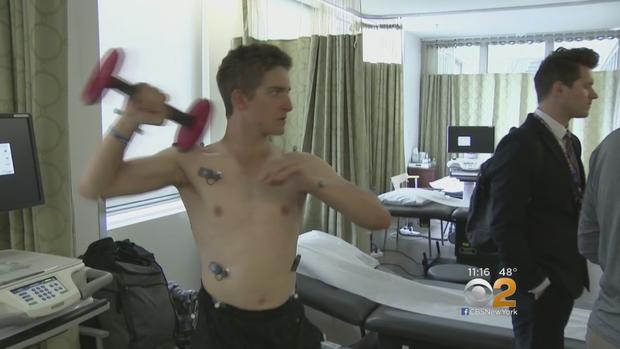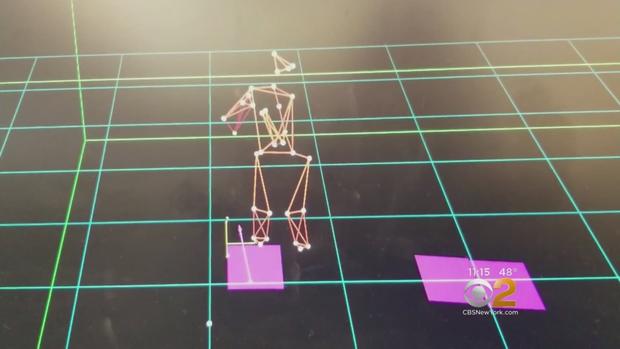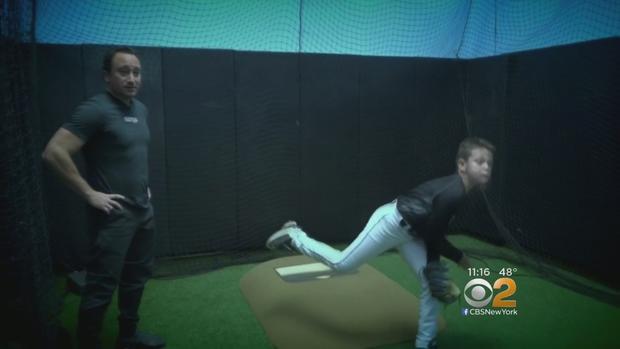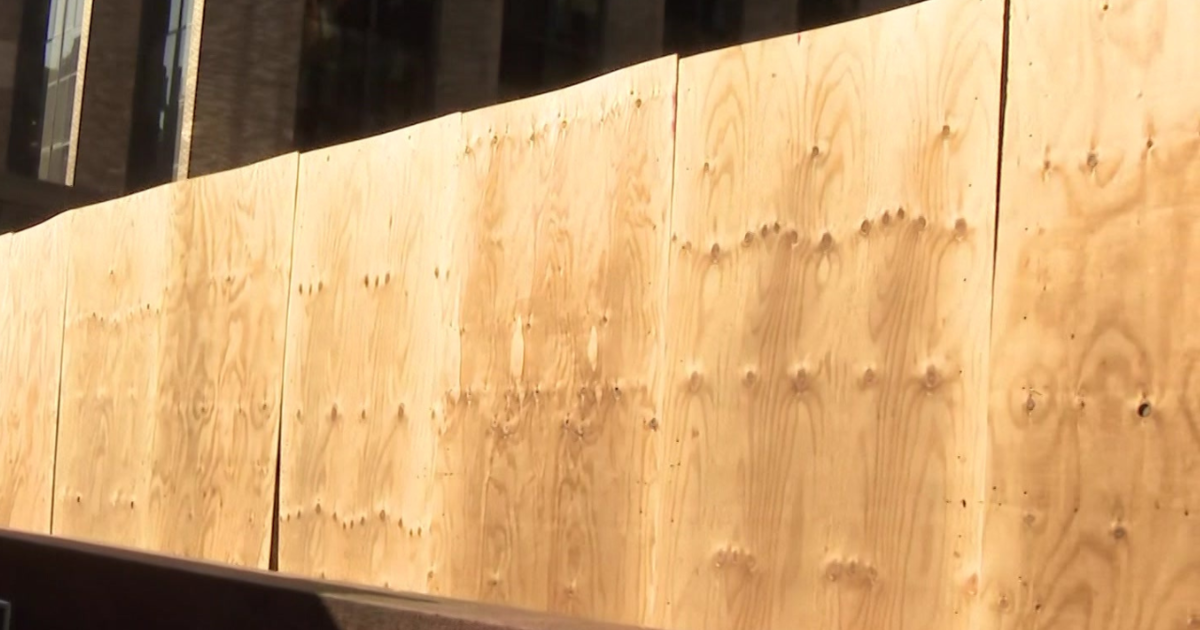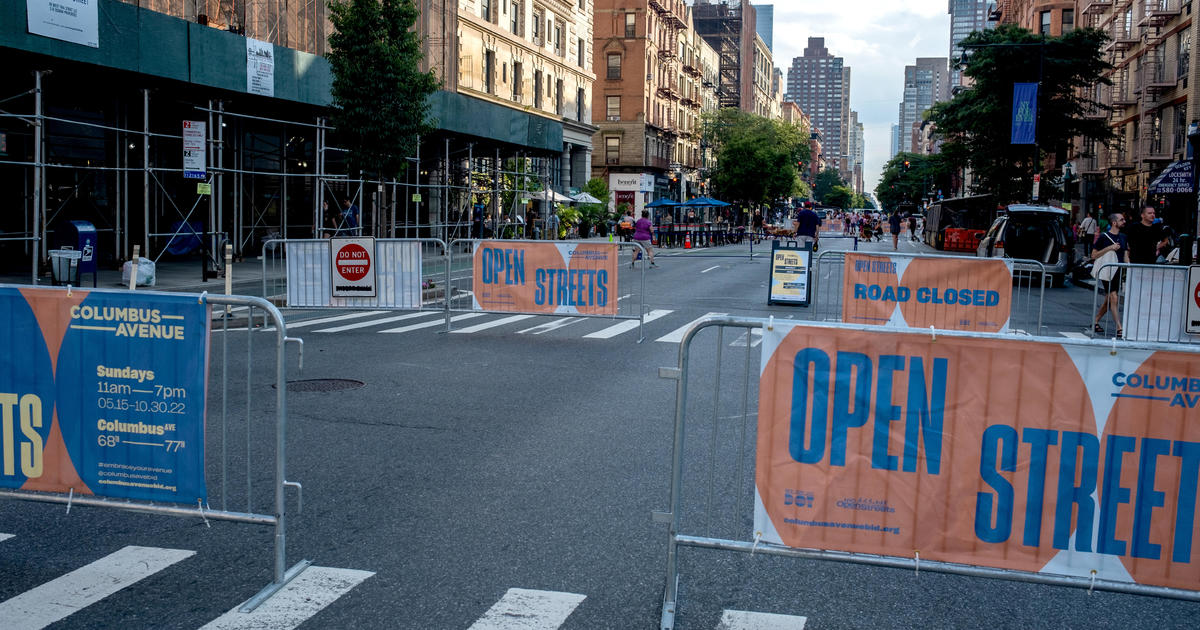Using Science To Turn Kids Into The Athletes Of Tomorrow
NEW YORK (CBSNewYork) – For serious kid athletes, and their parents too, the competition to succeed is fierce.
CBS2' Dr. Max Gomez discovered some parents are taking advantage of cutting edge programs to help turn their kids into superstar athletes.
With dreams of pitching in the big leagues, it will take perfect form to make it come true.
That's part of what Daniel Dinerman is hoping to achieve at the NYU Langone sports performance and testing lab.
FOR MORE ABOUT NYU'S PERFORMANCE LAB: Click here
Dinerman is outfitted in 32 markers so 13 cameras can pick up his every move. He'll be recorded in two formats, regular 2-D to get a visual on his performance and also as a 3-D stick figure to pick up details nearly impossible to see with the naked eye.
Those optical cameras are measuring degrees of movement within a fraction of a millimeter.
That's not all.
Danny is also pitching on embedded force plates that are measuring his ground reaction forces.
That's to show his push-off force as it relates to stride and pitching speed.
All of this hi-tech, sci -fi analysis is geared to improve performance and prevent injury.
"We're really looking at it, not only from how to maximize your pitching velocity or your drive in golfing, but also how you can do that most efficiently and effectively to reduce the chance of developing an injury," exercise physiologist Heather Milton said.
Milton says they're concentrating on baseball and golf because of the intensity of upper body movements.
"We can see that they're actually more efficient in their movement and the timing of movement as well as decreasing the torques on their upper extremities."
The program is for athletes of all ages. Nine-year-old Jake had his pitching form analyzed.
"I saw I looked good pitching and I saw that my arm was starting to whip around and I could throw really hard," the little-leaguer said.
For Dinerman, it's been a game changer.
"I haven't had one injury for the past six years. I've been able to create perfect mechanics in terms of the model that we have," he explained.
Nine-year-old Jake didn't pay for his analysis, but costs can run from about $450 for a single evaluation to about $1,300 for a more inclusive package with physiologists and follow-ups.
